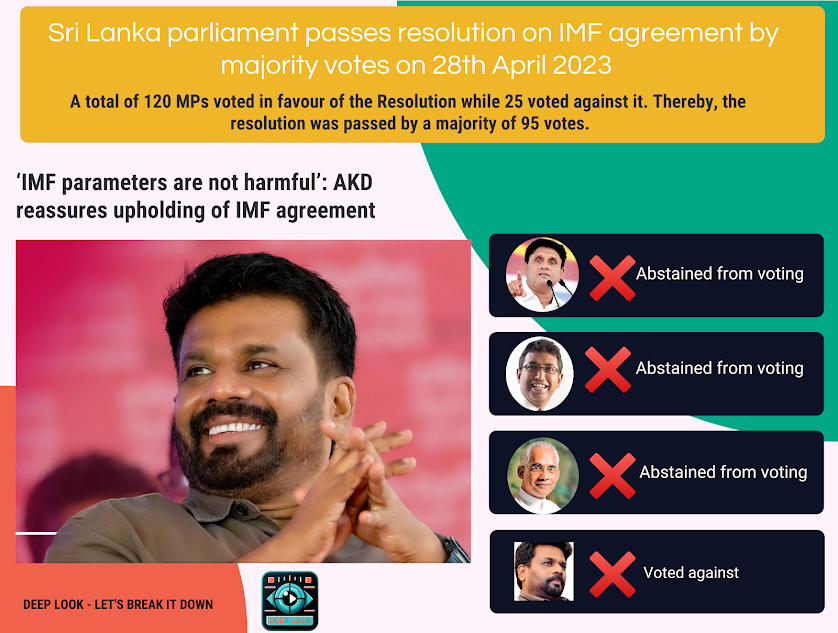The 2024 Sri Lankan presidential election has revolved
around a shared commitment from major candidates to support the International
Monetary Fund (IMF) agreement as a foundation for economic recovery. With Sri
Lanka grappling with inflation, debt, and currency challenges, the agreement's
reforms have been presented as vital for achieving financial stability and
sustainable growth.
Insights into Parliamentary Actions
While candidates have widely endorsed the IMF agreement
during their campaigns, voting patterns in Parliament have varied. Some
candidates chose not to support the agreement when it was presented, reflecting
a range of considerations in the legislative process. This has sparked
discussions about how political and economic priorities align during times of
crisis.
Challenges in Implementing Reforms
The IMF agreement includes measures such as tax
restructuring and adjustments to subsidies, which aim to strengthen the economy
over the long term. These changes, while necessary, may pose short-term
challenges, prompting some leaders to carefully navigate public opinion and
governance responsibilities. Factors such as political alliances and the
complexities of economic reforms likely influenced voting patterns.
Focus on Economic Stability
The variation in parliamentary responses highlights the
intricate balance between governance decisions and the need for public
engagement. Candidates and policymakers face the challenge of fostering
economic recovery while addressing public expectations. Clear communication and
consistency are essential in building trust and ensuring long-term progress.
Conclusion
The 2024 presidential election underscores the importance of leadership that can balance the immediate needs of citizens with the broader goal of economic reform. As Sri Lanka moves toward recovery, collaboration and effective communication will play a pivotal role in achieving lasting stability and growth.







No comments